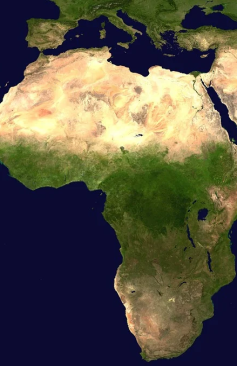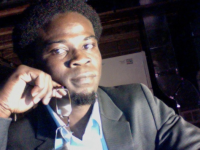Africans Must Reject Presidential Coups The Same Way They Reject Military Coups
By Joseph Kaifala
Published on July 18, 2016

Over the years military coups have gradually declined in Africa. The military has accepted the reality that overthrowing a democratically elected government is no longer acceptable. Citizens in multiple African countries have rejected attempts by their military to seize power—a recent rejection demonstrated in Burkina Faso. The International Community, including the African Union and ECOWAS, has also adopted a no-tolerance approach to juntas. Many African countries have embraced governments of the people, even if some elections are still marred by irregularities.
However, recent political trends on the African continent has revealed another form of coup that threatens to stagnate democratic progress—c’est a dire, presidential coups. What I am referring to as a presidential coup is when a sitting president changes the constitution or induces constitutional amendments to keep him/herself in power. By the standard of most African constitutions, this is usually a third term. The incumbent suddenly cries that he did not have enough time to accomplish his development agenda. My view is that if the president has not done in an average term of eight years what he/she was elected to do, then all the more reason he/she should step aside and let others lead.
As I write the people of Congo-Brazzaville have voted in a referendum to grant President Denis Sassou Nguesso a third term run in spite of protests from the opposition. Sassou Nguesso is one of Africa’s longest serving presidents. He first came to power in 1979 and ruled until 1992. He returned in 1997 and has remained president since. In Rwanda, even though 3.7 million people wrote a petition to parliament to avoid changing the constitution to allow Paul Kagame to run for a third term, that is exactly what the parliament has done. Other African leaders, including mine in Sierra Leone, are flirting with the idea of a presidential coup.
It is not the constitutional amendments that are abhorrent per se; it is the impropriety of an incumbent presiding over constitutional changes that effects his/her stay in power, when that is not the mandate on which he/she was elected. If their intentions are truly selfless, as these leaders claim, then they should not seek a third term during a proposed constitutional change to presidential term limit. As President Obama recently put it during his visit to Addis Ababa, “Africa’s democratic progress is also at risk when leaders refuse to step aside when their terms end.” These leaders are so egotistical that they genuinely believe, as Madiba framed it, that they are the only talents in their countries. To rephrase the former president of Guinea, Lansana Conte, who used to say that he was the only man in Guinea, ils ne sont pas les seuls garçons.
These countries’ leadership talents, and therefore their progress, are squandered when old leaders with anachronistic ideas refuse to leave office at the end of their terms. It is a new form of coup that Africans must reject. When one leader clings to power forever, as in Zimbabwe, Gambia, Cameroon, Equatorial Guinea, Angola, etc., he/she converts the country from a government of the people to a political sole proprietorship with all the impediments of mismanagement, unaccountability, corruption, and cronyism. Africa has been successful in rejecting military coups; we must now resist presidential coups for the sake of progressive leadership and African development.
The Author

Joseph Kaifala is founder of the Jeneba Project Inc. and co-founder of the Sierra Leone Memory Project. He was born in Sierra Leone and spent his early childhood in Liberia and Guinea. He later moved to Norway where he studied for the International Baccalaureate (IB) at the Red Cross Nordic United World College before enrolling at Skidmore College in upstate New York. Joseph was an International Affairs & French Major, with a minor in Law & Society.
He holds a Master’s degree in International Relations from the Maxwell School at Syracuse University, a Diploma in Intercultural Encounters from the Helsinki Summer School, and a Certificate in Professional French administered by the French Chamber of Commerce.
Joseph was an Applied Human Rights Fellow at Vermont Law School, where he completed his JD and Certificate in International & Comparative Law. He is the recipient of the Vermont Law School (SBA) Student Pro Bono Award, Skidmore College Palamountain Prose Award, and Skidmore College Thoroughbred Award.
Joseph was a 2013 American Society of International Law Helton fellow. He served as Justice of the Arthur Chapter (Vermont Law School) of Phi Alpha Delta Law Fraternity International. He is a member of the Washington DC Bar.
Article picture: WikiImages via Pixabay


